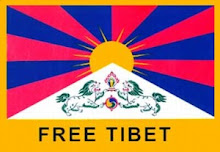
 «Dopo il mercato centrale di Kasavubu, Matongé è il cuore pulsante di Kinshasa, città di 4 milioni di abitanti [nel 1978] suddivisi in 400 etnie, capitale di un paese grande quattro volte l’Italia che ha conosciuto grandi sconvolgimenti sociali e una lunga dittatura. […] Matongé è la valvola che lascia sfiatare il vapore, una zona d’ironia libera per non impazzire. La musica zairese contemporanea è nata a Matongé, tra concessioni labirintiche e palazzoni di cemento. Una Corte dei Miracoli dove si trova di tutto per pochi soldi. […] La musica impazza dalle ngandas, taverne locali, e dagli altoparlanti dei negozietti straripanti di cassette pirata. Ma soprattutto, a partire da un’ora scandalosamente tarda, i club si trasformano in fornaci che sera dopo sera consumano i nuovi successi facendoli entrare nella leggenda. […]
«Dopo il mercato centrale di Kasavubu, Matongé è il cuore pulsante di Kinshasa, città di 4 milioni di abitanti [nel 1978] suddivisi in 400 etnie, capitale di un paese grande quattro volte l’Italia che ha conosciuto grandi sconvolgimenti sociali e una lunga dittatura. […] Matongé è la valvola che lascia sfiatare il vapore, una zona d’ironia libera per non impazzire. La musica zairese contemporanea è nata a Matongé, tra concessioni labirintiche e palazzoni di cemento. Una Corte dei Miracoli dove si trova di tutto per pochi soldi. […] La musica impazza dalle ngandas, taverne locali, e dagli altoparlanti dei negozietti straripanti di cassette pirata. Ma soprattutto, a partire da un’ora scandalosamente tarda, i club si trasformano in fornaci che sera dopo sera consumano i nuovi successi facendoli entrare nella leggenda. […] In questo universo dadaista, violento e passionale, intrallazzone e generoso […] durar è un’impresa eroica. Sicché Luambo Makiadi Lokanga La Dju Penè François, alias “Franco”, fa parte dei miti. esordisce negli anni ’50 sulle orme del chitarrista zairese Tino Barosa, mago dello stile patengué, un compromesso tra pachanga (post cha-cha-cha) e merengue (salsa dominicana), poi firma una rumba dal ritmo rapido, la famosa rumba odemba, arricchita di elementi folkloristici e pompata da una tecnica di chitarra che ricama su due note intorno a un tema che prima veniva dato dalla kalimba tradizionale, una sanza locale. Per affrontare l’impresa, Franco si serve di un pezzo da novanta, l’OK Jazz […] un ensemble con cui questo figlio del Basso Congo immagina una combinazione di ritmi locali e influenze cubane su uno sfondo di loquacità popolare che partorirà decenni di grandi successi. […]
Nel 1965 una “rogna” politico-finanziaria manda al tappeto la giovanissima orchestra; Franco salva gli strumenti dagli artigli dei creditori e fa rinascere il complesso con il nome di TPOK Jazz, da “Tout-Puissant OK Jazz” (“Onnipotente OK Jazz”), un modo per affermare un’ambizione smodata. Questa rinascita segna l’inizio di un’incredibile competizione con altre formazioni, in particolare quella dell’Africa Fiesta National guidata dall’estroso Tabu-Ley Rocherau, erede stilistico del grande Kabaselé. […]
Tuttavia, la longevità del successo di Franco è dovuta al suo talento di cronista della vita sociale e alla sua verve satirica […] molte sue canzoni testimoniano una propensione alla morale che seduce il pubblico popolare. […] Franco […] è di fibra plebea. Attraverso i suoi avi tetela, ngombé e ngoma incarna una percezione meticciata del mondo congolese. Un vissuto che gli permette di cantare fuori dai denti il rigore di una società travagliata dalla cupidigia dei potenti, dalla crisi economica, dall’onnipresente bustarella […] una società di cui si perdono i valori. […]» (Frank Tenaille, Lo swing del camaleonte, Epoché, pp. 69-73)
 «Of all the fabled dance bands in Africa, OK Jazz stand out for the quality of music, the quantity of output and their pan-African influence. The band was pre-eminent in African music for more than 30 years, linking the first generation of Congo rumba with the later exuberance of Zairean soukous.
«Of all the fabled dance bands in Africa, OK Jazz stand out for the quality of music, the quantity of output and their pan-African influence. The band was pre-eminent in African music for more than 30 years, linking the first generation of Congo rumba with the later exuberance of Zairean soukous.
This great musical institution [which was to become known as 'l'academie de la musique congolaise moderne'], was founded on June 6, 1956 when Franco, 'De la Lune' Daniel Lubelo (rh.gtr), Jean Serge Essous (sax), Bosuma Dessouin (conga), Pandi Saturnin (perc), Landot Philipe 'Rossignol' (vcl) Roitelet Munganya (bass) and some friends played their first dance under the name of OK Jazz in Kinshasa (Leopoldville).
The musicians were all session players at Loningisa studios where they had been tutored and directed by the guitarist Henri Bowane. As well as playing in the house band, Bana Loningisa (Loningisa Boys), most had released 78rpm records and had already scored several hits before they started as a gigging band. When they recorded these tracks later in 1956, the singers Vicky Longomba and Edo Nganga had joined. The following year, Antoine Armando Brazzo added his guitar accompaniment.
Franco had joined Loningisa in 1953 at the age of 15, initially playing with Dewayon and the Watam band. “At the time I was skinny, just a kid who played guitar which we called Libaku ya nguma (a hollow-bodied electrified guitar known as a 'lucky break') and the guitar was bigger than me.” He made such an impression that he was signed to a 10-year contract. Franco became Congo's first true pop star, sponsored to model clothes, endorsing products and enjoying a huge fan club. Musicians contracted to the record label were not supposed to work outside studio time, but in 1956 the Loningisa boys formally organised themselves into a working band, sponsored by Oscar Kashama, owner of the OK Bar. They still recorded under the names of individual members, while accompanists were also credited, sometimes as 'ensemble OK Jazz'.
Track 1, En Entre OK, On Sort KO, was a theme song and slogan for the band in which all the members are introduced. Considering its content, this can be counted as the debut release of Africa's greatest orchestra. Subsequent releases came regularly every few weeks, although the band's personnel shifted frequently. A major reshuffle occurred in 1957 but, throughout many upheavals and power struggles, Franco became established as the accepted leader. Loningisa closed down before Congo's independence in 1960, but OK Jazz evolved into a massive organisation and Franco' s personal reputation was never equalled. Throughout the 1960s, 70s and 80s, OK Jazz was the yardstick for African dance music. And this is where it all started.» (Retroafric, read more)
Link in comments











6 comments:
http://sharebee.com/5382483a
A true giant of African music.
Thanks!
yep! thanx bro, this is really great & rare!!! pure pleasure!!!
Michael R -- from Moscow
and - right now - I was listenin' to his song Likambo ya ngana - & I alomost cried... that's a masterpice although I don't know the words! a whole lotta soul....
First off, thank you for introducing me to so much great music. I never would have gotten into Dr. Nico or Inti-Illimani or whatever if it wasn't for this blog.
Unfortunately, I can't open this after I download it - I've tried several times. I don't know if this is a problem on my end or not.
Hi, Red Emma,
the file should be working, please, try to download it again.
Cheers,
R.
Post a Comment